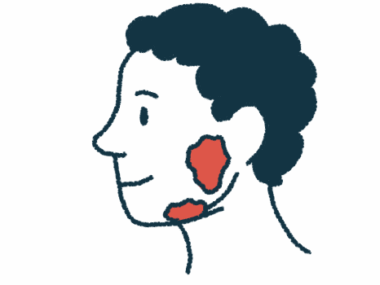Isturisa Now Available for Adult Cushing’s Patients in the U.S.
Written by |

Isturisa (osilodrostat) oral treatment for Cushing’s disease patients is now fully available to be sold and distributed across the United States, according to its developer Recordati Rare Diseases.
The move follows Isturisa’s recent approval by the U.S. Food and Drug Administration (FDA) for adult Cushing’s disease patients who either cannot undergo pituitary surgery or whose disease has returned after surgery.
“Isturisa is a meaningful addition to the treatment options for Cushing’s disease and helps address the significant unmet need for patients affected by this rare and life-threatening disease,” said Richard Auchus MD, PhD, a professor of medicine at the University of Michigan School of Medicine, in a press release.
The medication will be made available exclusively through the R.A.R.E. (Recordati, Access, Resources, and Engagement) Patient Support Program, which not only will distribute Isturisa to patients, but will offer insurance benefit investigations, educational references, resources for financial aid, and more.
The R.A.R.E. Program was created in partnership with AnovoRx, a specialty pharmacy that focuses on providing medical treatments to patients with rare and chronic diseases.
Clinicians wishing to enroll eligible patients in this program and prescribe Isturisa need to complete a patient referral form (available here).
Isturisa inhibits cortisol production by blocking an enzyme called 11-beta-hydroxylase. This enzyme is involved in the synthesis of cortisol, a hormone that is not properly regulated in Cushing’s disease. Blocking 11-beta-hydroxylase prevents the overproduction of cortisol, controlling or normalizing the hormone’s levels in the body, and reducing Cushing’s disease symptoms.
The approval was based on results from the LINC-3 Phase 3 clinical trial (NCT02180217) that showed Isturisa was able to normalize cortisol levels more effectively than a placebo.
In the trial, 137 Cushing’s disease patients were given Isturisa for 26 weeks, followed by an eight-week period in which some patients — those who had achieved normal cortisol levels — were given Isturisa, and others were given a placebo. The researchers found that 86% of participants taking Isturisa maintained normal cortisol levels, compared to 29% of the placebo group.
By regulating cortisol levels, the treatment is designed to limit the onset of symptoms associated with the disease.
“Isturisa mechanistically inhibits the final step of the cortisol synthesis pathway,” Auchus said. “Achieving control of cortisol production is an important strategy to help patients manage Cushing’s disease, and it may be crucial for mitigating the risk for comorbidities associated with hypercortisolism.”
The medication had some side effects, including reduced adrenal gland activity, fatigue, nausea, headache and swelling in more than 20% of patients.
However, Isturisa can be prescribed in three doses of varying strengths — 1 mg, 5 mg, and 10 mg — so, clinicians can customize prescriptions to their patients’ needs.
Isturisa also was approved by the European Commission (EC) for treating people with endogenous Cushing’s syndrome.





